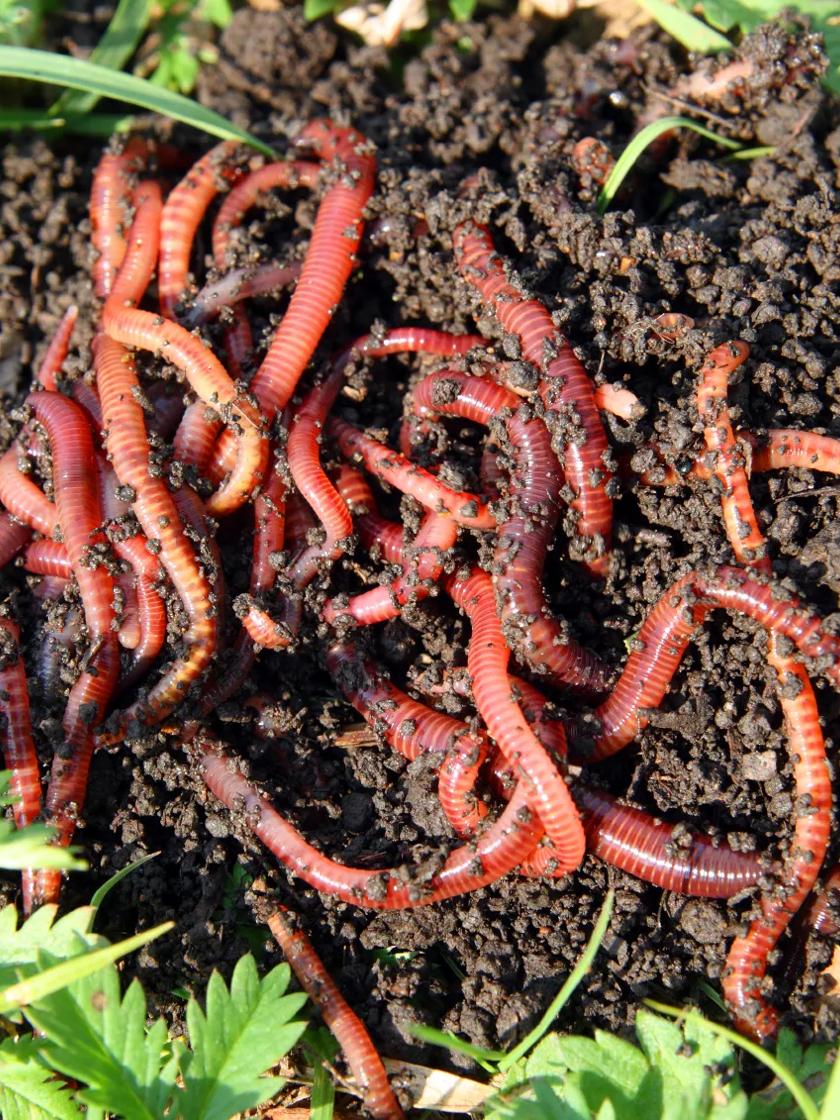The Extraordinary World of Red Wigglers: Boost Your Soil Fertility Today
The function of red wigglers, or Eisenia fetida, in enhancing soil fertility is a subject of growing interest among gardeners and farming specialists. These small yet efficient microorganisms transform natural waste into valuable worm spreadings, considerably enhancing soil wellness and advertising lasting methods. As we explore the advantages of vermicomposting and the sensible actions to produce an efficient worm bin, the prospective effect of these worms on your gardening success comes to be progressively evident. Understanding the subtleties of their care and application might simply alter the way you come close to dirt administration. What understandings can be gotten from integrating these amazing animals into your horticulture regimen?
Recognizing Red Wigglers
Red wigglers, scientifically called Eisenia fetida, are a species of earthworm that play a critical duty in improving dirt fertility. These worms thrive in organic-rich environments, such as garden compost stacks and decaying plant material, where they eat organic waste and eliminate nutrient-dense spreadings. Their special makeup, featuring a segmented body and a clitellum, permits them to duplicate swiftly and successfully procedure big quantities of raw material.

The eco-friendly importance of red wigglers prolongs past simple waste processing; they add to the dirt food web, promoting a varied community of microbes that even more boost soil health. Understanding the biology and behavior of red wigglers is necessary for utilizing their complete capacity in lasting agriculture and horticulture methods.
Advantages of Vermicomposting
(Lake Hickory Bait)Harnessing the power of red wigglers via vermicomposting deals various benefits that significantly boost dirt health and wellness and fertility. Among the key benefits is the manufacturing of nutrient-rich worm castings, which are an outstanding all-natural plant food. Red Wiggler Express. These castings include crucial nutrients like nitrogen, phosphorus, and potassium, advertising durable plant development and boosting plant yields
The presence of worm spreadings improves dirt texture, permitting for much better water retention and drainage. Red wigglers aid break down organic matter, increasing decomposition and recycling nutrients back right into the dirt.
Vermicomposting additionally promotes microbial task, which is vital for a healthy and balanced dirt environment. Beneficial bacteria flourish in the presence of worm spreadings, aiding in the break down of natural products and enhancing nutrition accessibility to plants.
Finally, vermicomposting offers as an effective waste administration service, decreasing land fill waste by reusing cooking area scraps and various other natural products. This not just contributes to ecological sustainability but likewise promotes a round economy within gardening and agriculture.
Just How to Set Up a Worm Bin
Establishing up a worm bin is an uncomplicated procedure that can dramatically improve your composting initiatives. Begin by choosing an ideal container, which can range from a commercially available worm bin to a simple plastic or wood box (Red Wiggler Express). Ensure the container has ample ventilation; little holes in the lid and sides will certainly help with air blood circulation
Next, create a bed linens layer to supply a comfy environment for the red wigglers. This can be made from shredded paper, cardboard, or coconut coir, moistened to a moist, sponge-like uniformity. Fill up the bin to about one-third full with this bed linen material.
Once the bed linen is prepared, it's time to present the worms. Red wigglers thrive in organic waste, so place them delicately onto the bed linens. Cover the worms with a light layer of added bedding to help them adapt.
Feeding Your Red Wigglers
Giving the appropriate food for your red wigglers is vital for their wellness and the efficiency of your composting system. Red wigglers flourish on a varied diet plan, mostly consisting of organic materials such as fruit and veggie scraps, coffee premises, and shredded paper. These materials not just give vital nutrients but also add to the microbial activity in the worm bin, which is critical for the worms' digestion.
It is essential to stay clear of specific foods, such as milk products, oils, and meats, as these can bring in insects and produce unpleasant smells. Furthermore, citrus peels and excessively hot foods ought to be limited as a result of their potential to hurt the worms. A well balanced approach to feeding entails monitoring the amount of food introduced to the bin, ensuring that it is eaten within a sensible time framework to stop excess waste accumulation.
To promote optimum digestion, it is helpful to chop or shred larger food things before including Discover More them to the container. This method boosts the area for microbial activity, helping with quicker decomposition and boosting the overall effectiveness of your composting system. Regularly observing the worms' feeding routines will help you change their diet as necessary.
Utilizing Worm Spreadings in Your Garden

(Lake Rhodhiss Bait)Incorporating worm spreadings right into your garden can be completed by blending them into the soil or using them as a top dressing. The slow-release nature of these castings ensures that nutrients are available to plants over a prolonged period, lowering the demand for synthetic fertilizers. Additionally, worm castings have advantageous microbes that promote healthy and balanced dirt ecological communities, enhancing the total strength of your garden.
To maximize the benefits, goal to use approximately one part worm castings to three components dirt in your planting beds. Normal applications can cause enhanced crop returns and healthier plants, making worm spreadings an indispensable resource for both amateur and skilled garden enthusiasts alike. By using this all-natural modification, you can cultivate a flourishing yard while adding to lasting gardening practices.
Final Thought
In final thought, red wigglers exemplify the important role of vermicomposting in enhancing dirt fertility. Their ability to convert organic waste right into nutrient-rich castings considerably enriches soil framework and supports microbial diversity.